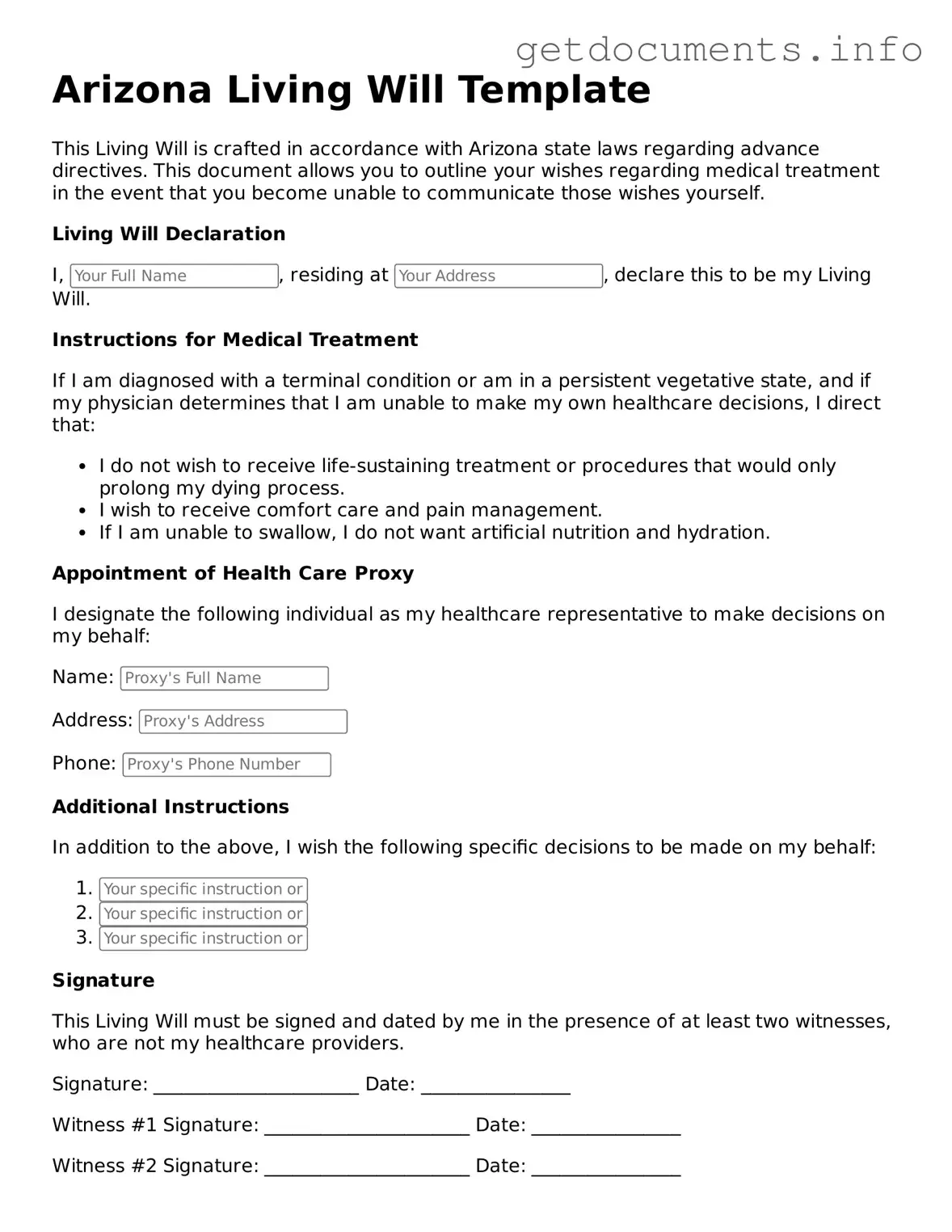Free Living Will Template for Arizona
A Living Will is a legal document that outlines your preferences for medical treatment in case you become unable to communicate your wishes. In Arizona, this form allows you to specify the types of life-sustaining treatments you want or do not want, ensuring that your healthcare aligns with your values. It's important to complete this form to provide clear guidance to your loved ones and medical professionals.
Ready to take control of your healthcare decisions? Fill out the Living Will form by clicking the button below.
Access Living Will Editor

Free Living Will Template for Arizona
Access Living Will Editor
Got places to be? Complete the form fast
Fill out Living Will online and avoid printing or scanning.
Access Living Will Editor
or
⇩ PDF File
